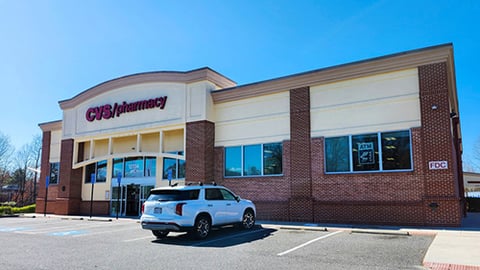Walgreens to Close 1,200 Stores as It Seeks to Turn Around Business
In another major development signaling the state of U.S. retail pharmacy businesses, Walgreens announced that it plans to close about 1,200 underperforming stores. The retailer shared the news in its fourth quarter and full fiscal year report.
Walgreens is taking action in the wake of sluggish sales, growing online competition and challenges in other aspects of its business that includes health care services. According to the company, the “footprint optimization program” will include the shuttering of at least 500 stores in fiscal 2025. This number is higher than the 300 stores that Walgreens announced it planned to close during its last recap in June.
It wasn’t a great quarter for the global pharmacy and health care organization, which posted a $3 billion loss during the three-month period ending Aug. 31. Adjusted earnings per share (EPS) dropped 40.8% on a constant currency basis. For the fiscal year, adjusted EPS came in 27.9% lower than the prior year.
During Q4, pharmacy sales at U.S. locations increased 9.6%, attributed to higher brand inflation and mix impacts. Retail sales declined 3.5% in that period, with comps down 1.7% compared to the fourth quarter of 2023. According to Walgreens, the retail margin was positively impacted by category mix and stronger store brand performance, partially offset by higher shrink levels.
Looking ahead, in addition to shedding underperforming stores, Walgreens projected a continued decline in its U.S. retail pharmacy business for fiscal 2025.
Walgreens Boots Alliance CEO Tim Wentworth said that the company is going to focus more on its retail pharmacy operations after delving into other health care businesses in recent years through acquisitions and expansions.
“Our financial results in the fiscal fourth quarter and full year 2024 reflected our disciplined execution on cost management, working capital initiatives and capex reduction. In fiscal 2025, we are focusing on stabilizing the retail pharmacy by optimizing our footprint, controlling operating costs, improving cash flow, and continuing to address reimbursement models to support dispensing margins and preserve patient access for the future,” he said. “Fiscal 2025 will be an important rebasing year as we advance our strategy to drive value creation. This turnaround will take time, but we are confident it will yield significant financial and consumer benefits over the long term.”
The year 2024 has proven to be a tough year for retail pharmacies. CVS Health Corp. recently shared that it is closing 900 stores, while Rite Aid Corp. closed hundreds of stores as it sought to right its proverbial ship during a bankruptcy process.
As traditional brick-and-mortar banners struggle, online pharmacies are heating up their efforts. Last week, Amazon announced that it is expanding same-delivery medication delivery to nearly half of the United States in 2025 and plans to open 20 pharmacies in 20 new cities next year, including Boston, Dallas, Minneapolis, Philadelphia and San Diego, among others. Amazon is able to scale its pharmacy business by tapping into its sophisticated pharmacy fulfillment centers.
[RELATED: Brick-and-Mortar Pharmacies Lag Behind Mail-Order, Digital Counterparts]
Progressive Grocer was on hand at Amazon’s "Delivering the Future" event in Nashville, Tenn., last week where Hannah McClellan, VP of operations, product and technology for Amazon Pharmacy, spoke about the company’s ability to fulfill consumers' needs.
“Amazon Pharmacy offers the fast and convenient delivery and high-quality customer care that Amazon customers love and trust, as well as the pricing transparency and savings that have been lacking in the pharmacy industry for too long. We are making healthcare more affordable, more engaging, and more accessible by narrowing that critical treatment window through same-day delivery, providing seamless online ordering, 24/7 clinical pharmacy support and upfront pricing,” she declared, adding, “We are just getting started with our relentless focus on customers.”
Deerfield, Ill.-based Walgreens currently operates nearly 9,000 retail locations across the United States, Puerto Rico and the U.S. Virgin Islands. The company is No. 6 on The PG 100, Progressive Grocer’s 2024 list of the top food and consumables retailers in North America. Seattle-based Amazon is No. 2 on The PG 100.






